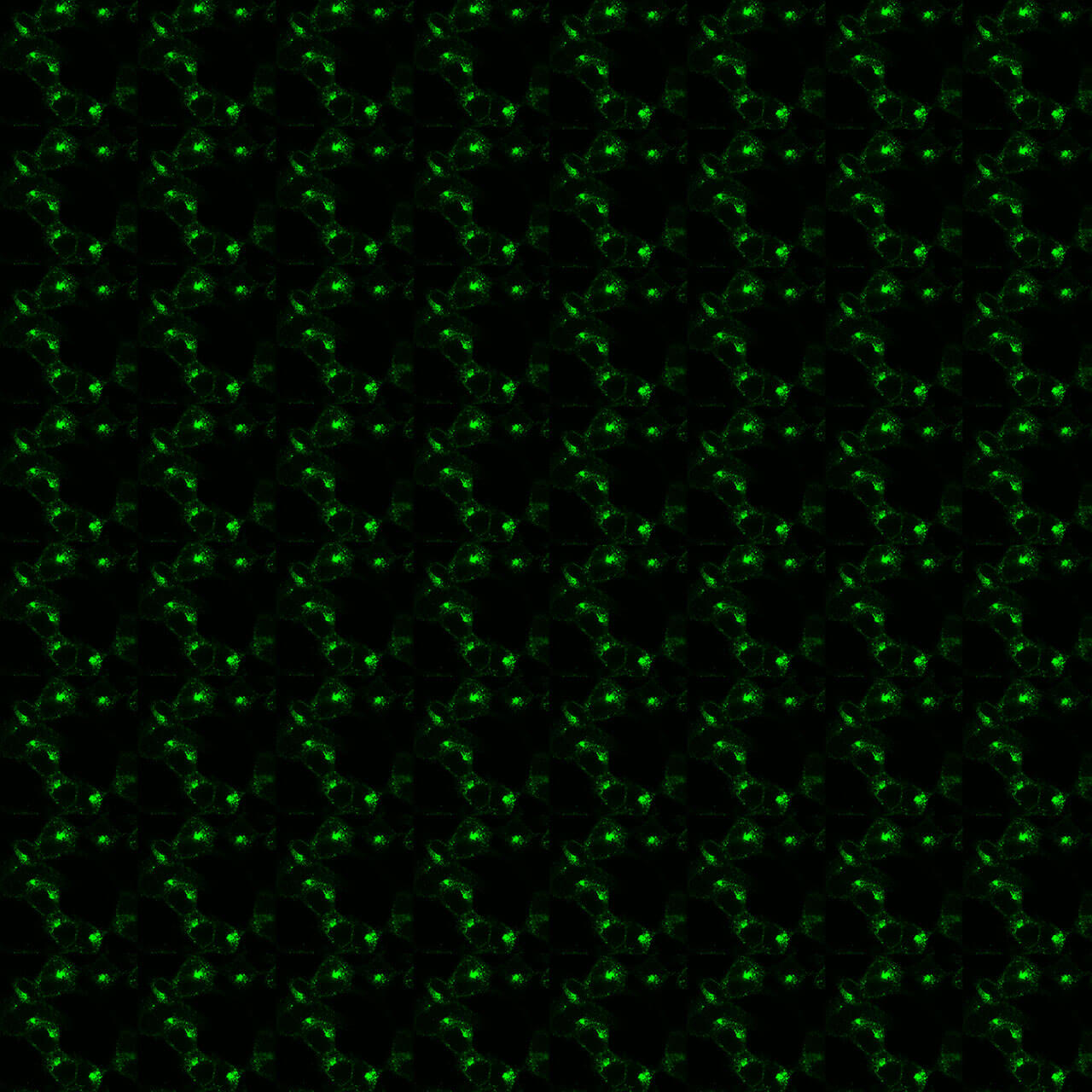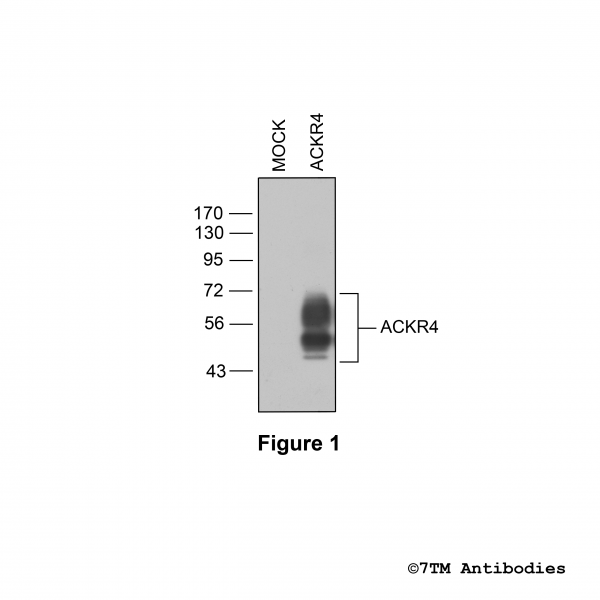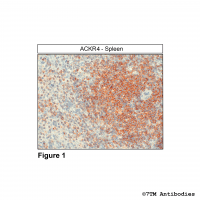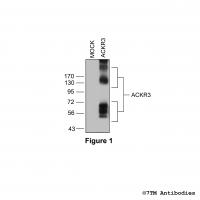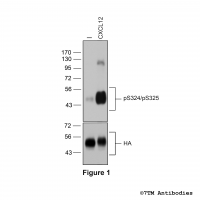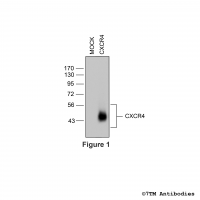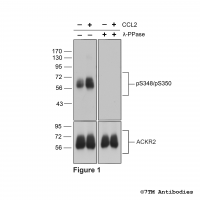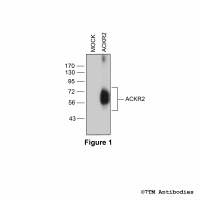Prices plus VAT plus shipping costs
Ready to ship today,
Delivery time appr. 5-8 days
- Order number: 7TM0315N
- Content: 100 µl
- Host: Rabbit
The ACKR4 receptor antibody is directed against the distal end of the carboxyl-terminal tail of human Atypical Chemokine Receptor 4. It can be used to detect total ACKR4 receptors in Western blots independent of phosphorylation. The ACKR4 antibody can also be used to detect ACKR4 in formalin-fixed, paraffin-embedded tissue sections by immunohistochemistry.
| Alternative Names | ACKR4, Atypical Chemokine Receptor 4 |
| IUPHAR Target ID | 315 |
| Uniprot ID | Q9NPB9 |
| Western Blot (WB) | 1:1000 |
| Immunohistochemistry (IHC) | 1:100 |
| Species Reactivity | Human |
| Host / Isotype | Rabbit / IgG |
| Class | Polyclonal |
| Immunogen | A synthetic peptide presents distal end of carboxyl-terminal tail of human ACKR4. |
| Form | Liquid |
| Purification | Antigen affinity chromatography |
| Storage buffer | Dulbecco's PBS, pH 7.4, with 150 mM NaCl, 0.02% sodium azide |
| Storage conditions | short-term 4°C, long-term -20°C |
Figure 1. Validation of Atypical Chemokine Receptor 4 in transfected HEK293 cells. Native HEK293 cells (MOCK) or HEK293 cells stably expressing the Atypical Chemokine Receptor 4 (ACKR4) were lysed and immunoblotted with the anti-ACKR4 antibody (7TM0315N-IC) at a dilution of 1:1000.
Figure 2. Immunohistochemical identification of Atypical Chemokine Receptor 4 in human spleen. Sections were dewaxed, microwaved in citric acid, and incubated with anti-ACKR4 (Atypical Chemokine Receptor 4) antibody (7TM0315N-IC) at a dilution of 1:100. Sections were then sequentially treated with biotinylated anti-rabbit IgG and avidin-biotin solution.Color was developed by incubation in 3-amino-9-ethylcarbazole (AEC), and sections were counterstained with hematoxylin. Note, ACKR4 receptors were detected at the plasma membrane of nearly all cells in human spleen.
Figure 3. Immunohistochemical identification of Atypical Chemokine Receptor 4 in human spleen. Sections were dewaxed, microwaved in citric acid, and incubated with anti-ACKR4 (Atypical Chemokine Receptor 4) antibody (7TM0315N-IC) at a dilution of 1:100. Sections were then sequentially treated with biotinylated anti-rabbit IgG and avidin-biotin solution.Color was developed by incubation in 3-amino-9-ethylcarbazole (AEC), and sections were counterstained with hematoxylin. Note, ACKR4 receptors were detected at the plasma membrane of nearly all cells in human spleen.

